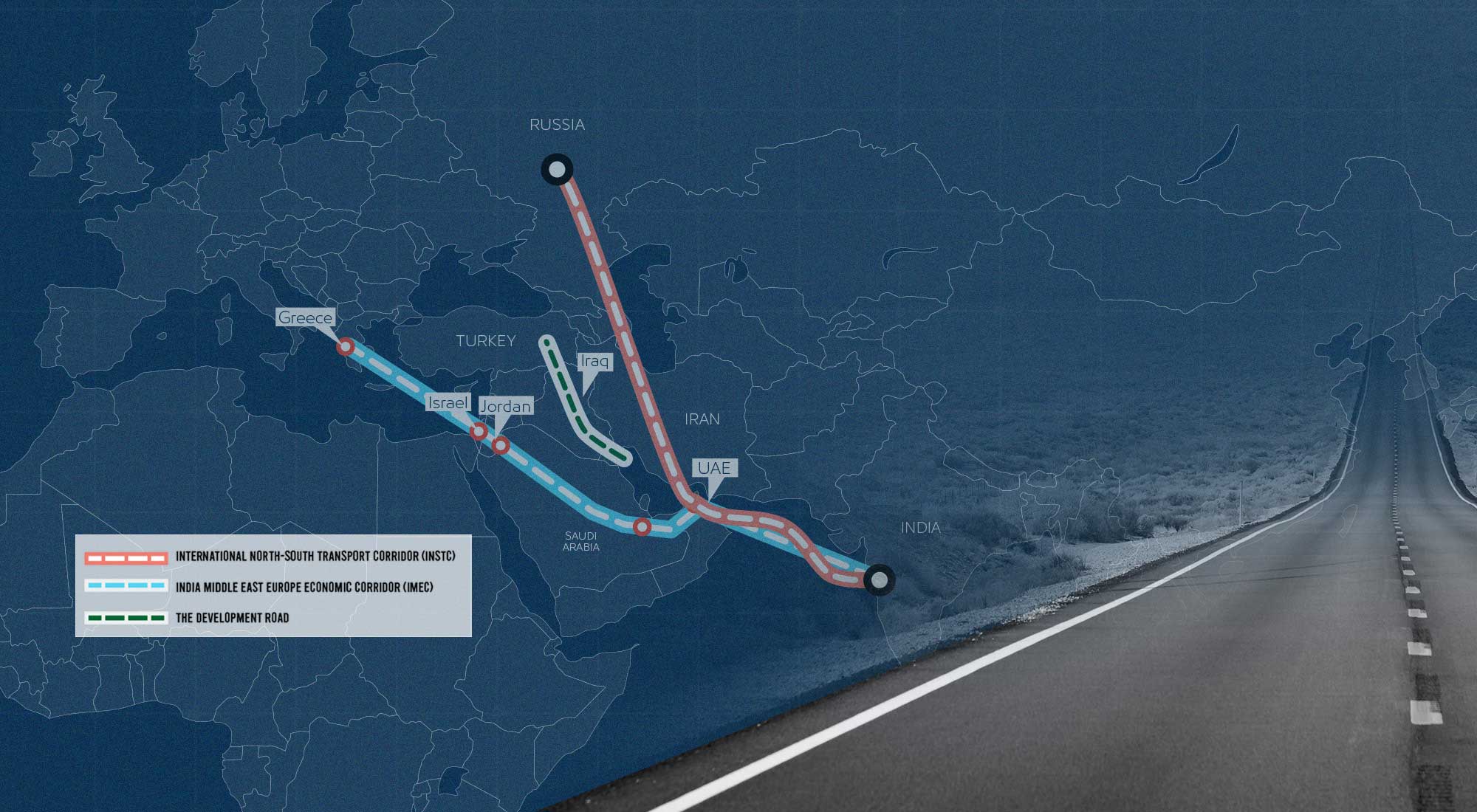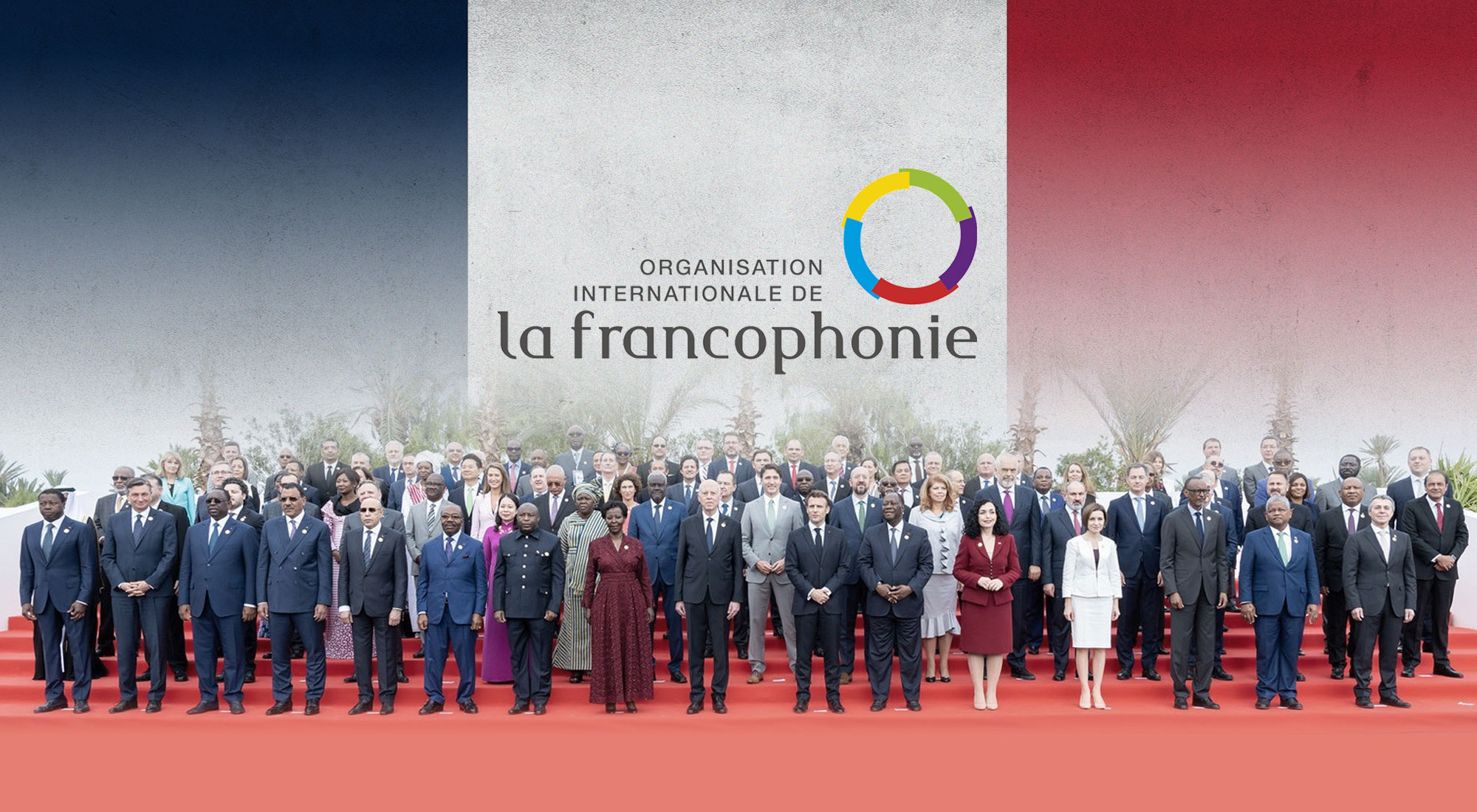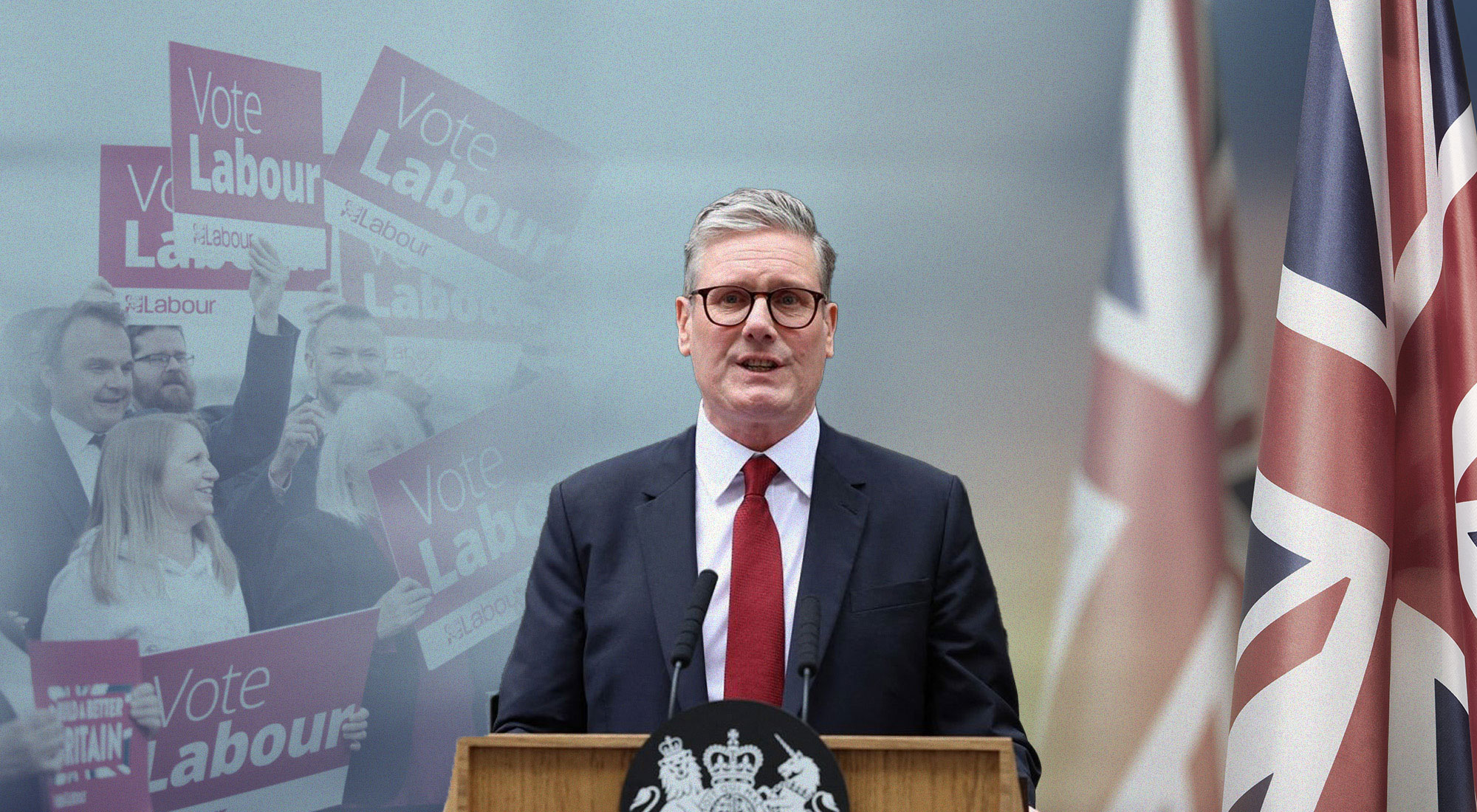The ongoing talks in Vienna aimed at salvaging a nuclear agreement between Iran and the US, its European allies, along with Russia and China, are the seventh round of negotiations to take place on this issue following US withdrawal from the JCPOA in 2018 under the Trump Administration. The current round is the first to be held under Iran’s newly elected President Ebrahim Raisi, an anti-West hardliner and ultra conservative who, in his first press conference as President-elect in June 2021, stated “the world should know that the maximum pressure on our people has not worked and they must reconsider and return to their commitments. The world should know that our government’s foreign policy does not start with the JCPOA and won’t be limited to it.”[1] Subsequently, leading up to the Vienna negotiations in November, Iran approached the talks with a maximalist, uncompromising position expressed by its Chief Nuclear Negotiator Bagheri Kani that since it was the US to first exit the JCPOA, it was their obligation to make the “first move” and lift all sanctions on Iran, including those sanctions measures not directly related to the nuclear program. The Iranians also demanded a promise of “permanent” relief from sanctions and the threat of their reimposition in the future as part of the basis for a constructive outcome in Vienna. The US, on the other hand, stated unequivocally that any unilateral sanction relief was incumbent on Iran’s full compliance with the original requirements and actions mandated in the JCPOA agreement.
A Return to the 2015 JCPOA
The objective of the 2015 JCPOA was to restrict Iran’s nuclear program by mandating its stockpile of uranium and enforcing limits on the amount of enriched uranium Iran could produce, alongside restrictions placed on the number of centrifuges Iran could operate along with a permanent prohibition on nuclear weapon development. To ensure compliance, strict verification contingencies were put in place, including continuous monitoring of Iran’s uranium mines and mills for 25 years and centrifuge production facilities for 20 years and permission for the International Atomic Energy Agency (IAEA) to inspect undeclared sites. In return, the US, the EU, and the UN agreed to implement sanctions relief and allow Iranian access to $100 billion in frozen assets. Prior to 2015, such globally imposed sanctions contributed to the contraction of Iran’s economy, as crude oil exports fell by more than 50% in conjunction with Iran’s inability to access its foreign funds abroad.[2] In short, sanctions relief played a major role in Iran’s decision to enter into the agreement.
One of the crucial facets of the monitoring and verification component of the JCPOA was that experts believed such continuous observation would ensure that if Iran did set its sights on developing nuclear weapons, they would need approximately a year to do so – known as the “breakout” point where enough fissile material could be produced to manufacture a bomb. Having such a buffer of time would have allowed the IAEA inspectors to eventually discover and verify Iran’s allegedly malicious activities through ongoing inspections to provide policy makers and the international community enough time to react and respond accordingly. And while international inspectors confirmed that Iran honor its end of the bargain and complied with the JCPOA for the first three years, this did not convince former President Donald Trump who unilaterally pulled the US from the nuclear deal in 2018 after denouncing it as a “disaster” and “one of the worst deals ever negotiated.”[3] His dissatisfaction stemmed from the agreement’s sunset provision, which allowed for the residual lifting of nuclear restrictions after years 8, 10, and 15 and permitted Iran to continue with uranium enrichment beyond those points. From Trump’s perspective, such conditions would only embolden the Iranians to inch closer towards a nuclear weapon, even though the provision stipulated rigorous inspections by the IAEA that were intended to act as not only a verification mechanism, but also as a deterrent. In addition to the withdrawal, Trump also reimposed sanctions lifted under the JCPOA that targeted Iran’s oil, energy, and financial sectors. This move led to a severe depreciation of the Iranian Rial while causing Iran’s GDP to contract by nearly 10% in 2019[4]; a tactic Trump coined as America’s “maximum pressure campaign”.
After the US withdrawal from the agreement, Iran attempted to remain committed to the JCPOA terms in coordination with the EU members, though crippling economic sanctions ultimately led the Iranians to retaliate by systematically breeching the agreement from May 2019 with the installation of advanced centrifuges for the purpose of producing stockpiles of enriched uranium that well exceeded the limits specified in the JCPOA. Tehran therefore “tied its decision to breach the JCPOA’s limits to the deal’s failure to deliver sanctions relief envisioned by the accords, and implicitly, U.S. withdrawal from the deal.”[5] The recent acceleration of Iran’s nuclear program is now estimated to have decreased Iran’s breakout point from 12 months under the JCPOA guidelines to anywhere between 90 days to several weeks to reach a point of no return. And while Iran claims it has no interest in producing a nuclear bomb, what is of far more importance to the Iranians in Vienna is rather the leverage they’re able to wield from their late-stage nuclear development, particularly sanctions relief from the US and the EU.
Considering the current political divide in the US, President Biden faces an uphill domestic battle in terms of finalizing a new agreement with Iran, particularly given Republican opposition to reviving the JCPOA. Texas Senator and Iran-hawk Ted Cruz stated in late 2021 that Biden has “zero constitutional authority” to make a commitment to Iran, adding that “unless any deal with Iran is ratified by the Senate as a treaty—which Biden knows will not happen—it is a 100% certainty that any future Republican president will tear it up. Again.”[6] Nonetheless Iran has remained adamant that Biden must offer some form of assurance that any new agreement will not be repudiated by future administrations. This is seen as essential given that Iran is seeking to stabilize its economy to encourage oil and gas companies, for example, to make long-term investments in Iran’s vitally important energy sector.
For President Biden, who campaigned on pledge to revive the JCPOA, such a guarantee is impossible – not because it isn’t in the interest of US, but rather due to the political nature of the agreement. It can be noted that “[b]oth the Obama Administration and Trump Administration treated the JCPOA – an unsigned document that purports to rely on ‘voluntary measures’ – as a non-binding political commitment rather than a legally binding international agreement.”[7] And while Trump was able to repudiate the JCPOA without violating international law, the fallout from his decision has had greater political consequences.[8]
Economic Hardship
For a number of years, Iran has managed to circumvent the crippling impact of global economic sanctions primarily through the illicit sale of oil to China and Russia. Yet while Iran has been able to mitigate the economic impact of sanctions, relief from such measures combined with the ability to resume oil exports worldwide would add nearly $50 billion per year to Tehran’s hard currency revenues.[9] With inflation in Iran having reached 50 percent in March 2021,[10] such an inflow of earnings would certainly help to relieve economic pressure and bring down Iran’s exchange rate in line with the Iranian public’s demands of its newly elected leadership. For the West, the expectation has been that such economic hardship at home would incentivize Iran’s posture in Vienna, as simply walking away without any relief for its people is not a viable political option when the country is experiencing a rise in poverty, unemployment, and income inequality[11] in addition to the economic impact of the ongoing COVID-19 pandemic. Dr. Christoph Hamelmann, the World Health Organization (WHO) representative to the Islamic Republic of Iran, has warned that any further peaks or outbreaks of new variants such an Omicron could have devastating effects on an already dire situation. “Iran has a lot less fiscal room to go through a lockdown,” said Dr Hamelmann: “[t]he country had to open earlier because it was not sustainable to remain closed. Even now, there’s very little option to go to complete lockdown if we hit another COVID-19 peak.”[12]
Nevertheless, Iran announced shortly before talks began in Vienna that its stockpile of 60% enriched uranium had been increased to 66 pounds (30 kilograms), which meant that in tandem with its recent production of uranium metal – the main element needed for a nuclear warhead – Iran had just taken one step dangerously closer to a nuclear weapon. By signaling its reaching such a provocative milestone, Iran has been hedging its bets with the hopes that such pressure would provide its negotiators with the upper hand in Vienna while motivating the Biden Administration to take notice that time is running out.
The danger of availing such leverage and becoming a threshold state increases the risk of miscalculation, particularly given public statements from both the US and Israel that under no circumstances will they allow Iran to build a nuclear weapon. During a recent trip to Bahrain, US Secretary of Defense Lloyd Austin confirmed that “[t[he United States remains committed to preventing Iran from gaining a nuclear weapon. And we remain committed to a diplomatic outcome of the nuclear issue. But if Iran isn’t willing to engage seriously, then we will look at all the options necessary to keep the United States secure.”[13]
Upending the Regional Balance of Power
While Israel has stated it’s not opposed to negotiations and recognizes the international and regional imperatives of reaching an agreement with Iran, PM Naftali Bennett urged the parties in Vienna not to become entrapped by Iran’s “nuclear blackmail”. Pushing for tougher responses to Iran’s recent uranium enrichment, Defense Minister Benny Gantz affirmed that Israel stands ready to defend itself “on our own if we decide that is what we must do.”[14] In this context, Israel recently approved a $1.5 billion budget in October 2021 “to bolster its capabilities to attack Iran’s nuclear facilities” which would include the procurement of “aircraft, intelligence gathering, and dedicated armaments that can enable the attack.”[15] For Israel, a nuclear armed Iran remains a constant national security threat; one that is far closer geographically to Israel than the US.
Just two days prior to the Vienna talks, the spokesman for Iran’s armed forces, General Abolfazl Shekarchi, reiterated to local media Iran’s long-time position on Israel: ‘[w]e will not back off from the annihilation of Israel, even one millimeter. We want to destroy Zionism in the world.”[16] With Israel’s literal existence as stake, such rhetoric is of paramount concern. If the current talks reach a stalemate, such an impasse may tempt Iran to move rapidly ahead with its nuclear program to become a threshold state. Such an approach may also serve to embolden Iran’s proxies, particularly Hezbollah and Hamas, who also remain a perpetual, daily threat to Israel’s homeland security.
On the other hand, for Israel – and the region in general – there is a danger that lifting sanctions may be followed by a cascade of cash into Iran’s coffers which in turn will lead to capital flowing into the hands of its proxies. Besides Hezbollah in Lebanon and Hamas in the West Bank, there is also a concern that more weapons and funding would reach the Houthis in Yemen as well as local Shiite militias in Iraq and Syria. Such access to its currently frozen vast financial resources – estimated to be in the tens of billions – has serious potential to undermine stability and peace in the region while possibly recalibrating the balance of power in the Middle East. Such a scenario must be confronted with regional diplomatic efforts, particularly ones that “sweeten the pot” with economic incentives, to ensure Iran reins in its attempted regional power grab while also committing to curbing its ballistic missile program – itself a major source of contention in the region and one not addressed in the 2015 JCPOA agreement.
The Linchpin: China
While a stalemate in Vienna may not be the outcome the P5 + 1 is hoping for, China – and to some extent Russia – are indeed the linchpins needed to secure a breakthrough. President Raisi’s view is that the JCPOA should no longer be at the forefront of Tehran’s priorities, mainly because Iran has been able to withstand the economic pressure from US sanctions thanks to its growing and lucrative alliances with Russia and China.[17] Iranian crude accounts for 6% of China’s oil imports equivalent to approximately half a million barrels per month despite US sanctions.[18] Such revenue for Tehran, constituting nearly $1 billion a month in exports to China alone, has only undermined the intended economic effects of global sanctions as well as diminished US leverage in terms of bringing Iran back to the negotiation table. Although such transactions violate the JCPOA, the assumption is that the Biden Administration does not want to derail future talks by holding China’s feet to the fire.
While it’s crucial for the US to have China on board to revive the nuclear deal, Washington has several options that could entangle China in an effort to exert pressure on Iran to reverse course if talks fizzle out. One option would be to sanction shipping companies transporting oil to China. Another option that would certainly carry the most influence would be to ratchet up pressure on the Chinese to halt crude imports from Iran altogether. However, given that relations between Beijing and Washington are at an all-time low, such a scenario would require significant concessions from the US. President Xi could easily turn the tables and request Biden to ease up US tariffs on Chinese goods or tone down its rhetoric on China’s policies towards Hong Kong and Taiwan. Even so, such promises would be unlikely to weaken relations between Beijing and Tehran considering that the two recently signed a 25-year economic and security cooperation agreement that will clear the path for billions of dollars of Chinese investment in Iranian energy and expand China’s “presence in banking, telecommunications, ports, railways and dozens of other projects”. In return for its $400 billion investment, China, the world’s top importer of crude oil, is poised to receive steep discounts on its Iranian oil imports,[19] leading to a lucrative win-win for both parties.
Another critical component of the trilateral relationship between Moscow, Beijing, and Tehran is Iran’s recent admission as a full-fledged member of the Shanghai Cooperation Organization (SCO), the Eurasian political, economic, and security alliance led by China and Russia. Iran’s membership can be seen as a concrete step to ensure the country will be far less isolated from the international community. Considering Iran is the third biggest global producer of natural with the world’s fourth largest oil reserves, such a regional institution can only help to boost Iran’s limited network and relieve some of the fiscal pressures applied by the West. Lawrence J. Haas, Senior Fellow at the American Foreign Policy Council, recently published his take on Iran’s membership of the SCO that argues the move reduces Tehran’s global isolation and “further legitimizes its status as an international player”. Haas believes Iran’s accession has the potential to “to limit U.S., Israeli and Western leeway in confronting Tehran’s nuclear and hegemonic aspirations, sponsorship of international terrorism and efforts at regional de-stabilization”.[20] Such analysis underscores the Biden Administration’s urgent need to push forward cautiously with diplomatic efforts, particularly given Israeli concerns, while Raisi seems to be in no rush to give concessions to the West while taking comfort in his newly minted security ties with China. The question remains, however, how much cover will Beijing or Moscow will provide Iran if it chooses to accelerate its possible development of a nuclear weapon only to cause the Israel to react militarily. For Biden, the hope is to show his fellow P5+1 members, that Iran – not the US – is obstructing talks and seeking to buy time to advance their nuclear program to ultimately reach a point where the JCPOA becomes irrelevant. At the end of the day, Russia and China are able to manipulate Iran’s economic levers by keeping the country afloat. How they determine the future direction of talks remains anyone’s guess.
Conclusion
As the international community remains fragmented on how to tackle Iran’s nuclear program, the lack of Russian and Chinese consensus will only continue to work in Tehran’s favor. Given that Tehran has been able to circumvent the West’s coercive economic pressures, such efforts today seem to suggest that the US is maxing out its ability to leverage Iran into a corner. Yet as Iran remains firm in its stance that guarantees from the West are required to break the stalemate, there is one aspect in particular the Tehran regime should keep in mind before reaching a point of no return.
The “pivot to Asia” will continue to drive US foreign policy for decades to come. As Washington remains committed to detangling itself from the Middle East and focusing its attention and resources eastward towards China, stability in the Middle East will nevertheless remain crucial for future US interests. Although Iran has valid concerns regarding the potential actions of future US administrations regarding the JCPOA, most analysts have concluded that Trump’s decision to withdrawal from the nuclear deal one was one of the most “counterproductive U.S. national security decisions of the post-Cold War era.”[21] Israel’s Defense Minister, Moshe Ya’alon, who has opposed the JCPOA from the start, recently stated that “as bad as that deal was, Trump’s decision to withdraw from it was even worse”, calling the move “the main mistake of the last decade in Iran policy”.[22]
It’s certainly plausible that US regional allies may urge future administrations to avoid pulling the plug once again on the JCPOA, particularly as ongoing diplomatic efforts in the region aim to adopt new approaches to diffuse tensions stemming from Iran’s nuclear efforts. It is possible that by 2025, whoever enters the White House may be content to keep Iran locked in the JCPOA rather than be bogged down in yet another confrontation in the Middle East, particularly after the political fallout following the mishandled US withdrawal from Afghanistan.
What happens next is frankly up to Iran. Settling for short-term gains by agreeing with the US to a mutual return of compliance with the JCPOA regardless of what may transpire in 2025 is in Iran’s immediate financial interest. It is difficult to imagine Iran’s negotiators walking away from a stalemate in Vienna only to signify to its people that after years of economic stagnation, it is unwilling to seek a lifting of sanctions and instead open the possibility of further hardship along with military attacks on both its nuclear facilities and “targets of economic and military value”.[23]
Assuming diplomatic efforts collapse, both the US and Israel have recently hinted at the possibility of a joint military initiative, as both nations have unequivocally stated they stand ready to ensure Iran does not develop a nuclear weapon. However, there is one central component to Iran’s nuclear program that cannot be obliterated by warfare: Iran’s nuclear knowledge and experience. Being able to bypass sanctions time and time again has allowed Iran to become savvy enough to rebuild after being knocked down. This factor will continue to undermine the JCPOA’s effectiveness for the long haul.
However, the question remains: is Iran willing to push its nuclear program to the brink only to risk military action from Israel and the US? Also, equally importantly, is the Biden Administration prepared to enter into such a military campaign heading into the 2022 mid-term elections with Republicans poised to gain control of the House next year? Is an attack on Iran worth jeopardizing Biden’s political ascendency in Washington? For now, all we can do is wait and see who blinks first.
References
[1] ‘Raisi to US: Return to JCPOA and carry out your commitments,’ Islamic Republic News Agency, https://en.irna.ir/news/84377057/Raisi-to-US-Return-to-JCPOA-and-carry-out-your-commitments
[2] Kenneth Katzman. 2021. ‘Iran Sanctions,’ Congressional Research Services, https://sgp.fas.org/crs/mideast/RS20871.pdf
[3] Yeganeh Torbati. 2016. ‘Trump election puts Iran nuclear deal on shaky ground,’ Reuters, https://www.reuters.com/article/us-usa-election-trump-iran-idUSKBN13427E
[4] Richard Haass. 2019. ‘The Post-American Middle East,’ Council on Foreign Relations, https://www.cfr.org/article/post-american-middle-east
[5] Kelsey Davenport. 2021. ‘JCPOA-at-a-Glance,’ Arms Control Association, https://www.armscontrol.org/factsheets/JCPOA-at-a-glance
[6] Senator Ted Cruz [@tedcruz]. 2021. ‘Nope. Joe Biden has ZERO constitutional authority to make that commitment and [Tweet],’ Twitter, https://twitter.com/tedcruz/status/1454897019055710209
[7] Stephen P. Mulligan. 2018. ‘Withdrawal from the Iran Nuclear Deal: Legal Authorities and Implications,’ Congressional Research Services, https://sgp.fas.org/crs/nuke/LSB10134.pdf
[8] Ibid.
[9] David Wainer & Golnar Motevalli. 2021. ‘U.S.-Iran Nuclear Talks Restart Amid Pessimism: Analysts’ Voices,’ Bloomberg, https://www.bloomberg.com/news/articles/2021-11-29/u-s-iran-nuclear-talks-restart-amid-pessimism-analysts-voices
[10] ‘Iran’s Inflation Rate Reaches An Alarming 50 Percent,’ Iran International, https://old.iranintl.com/en/iran-in-brief/irans-inflation-rate-reaches-alarming-50-percent
[11] Tara Rahmani. 2021. ’Life on the Ground in Iran: From the View of the People,’ Wilson Center, https://www.wilsoncenter.org/article/life-ground-iran-view-people
[12] ‘In Middle East COVID-19 hotspot Iran, WHO walks the talk,’ World Health Organization (WHO), https://www.who.int/news-room/feature-stories/detail/in-middle-east-covid-19-hotspot-iran-who-walks-the-talk
[13] David Vergun. 2021. ‘Austin: U.S. ‘Committed to Preventing Iran From Gaining a Nuclear Weapon,’ Department of Defense, https://www.defense.gov/News/News-Stories/Article/Article/2849785/austin-us-committed-to-preventing-iran-from-gaining-a-nuclear-weapon/
[14] Lazar Berman. 2021. ‘As Iran talks begin, Bennett urges world powers: Resist regime’s ‘nuclear blackmail,’’ Times of Israel, https://www.timesofisrael.com/as-iran-talks-begin-bennett-urges-world-powers-resist-regimes-nuclear-blackmail/
[15] ‘Report: Israel approves $1.5 billion budget to target Iran,’ i24 News, https://www.i24news.tv/en/news/israel/diplomacy-defense/1634587105-israel-approves-nis-5-billion-to-target-iran-s-nuclear-program
[16] Herb Keinon. 2021. ‘Iran: US, Israel have the same goal, vastly different sense of urgency,’ The Jerusalem Post, https://www.jpost.com/middle-east/iran-news/iran-us-israel-have-the-same-goal-vastly-different-sense-of-urgency-687716
[17] Jacob Magid. 2021. ‘He led IDF intel gathering on Iran, was ignored and fears Israel is now paying price,’ The Times of Israel, https://www.timesofisrael.com/he-led-idf-intel-gathering-on-iran-was-ignored-and-fears-israel-is-now-paying-price/
[18] Chen Aizhu and Alex Lawler. 2021. ‘China’s Iran oil purchases rebound on lower prices, fresh quotas,’ Reuters, https://www.reuters.com/business/chinas-iran-oil-purchases-rebound-lower-prices-fresh-quotas-2021-11-10/
[19] Farnaz Fassihi and Steven Lee Myers. 2020. ‘Defying U.S., China and Iran Near Trade and Military Partnership,’ The New York Times, https://www.nytimes.com/2020/07/11/world/asia/china-iran-trade-military-deal.html
[20] Lawrence J. Haas. 2021. ‘Iran’s SCO Entry Could Complicate U.S.-Israeli Strategic Options | Opinion,’ Newsweek, https://www.newsweek.com/irans-sco-entry-could-complicate-us-israeli-strategic-options-opinion-1633488
[21] Thomas L. Friedman. 2021. ‘Trump’s Iran Policy Has Become a Disaster for the U.S. and Israel,’ The New York Times, https://www.nytimes.com/2021/11/30/opinion/trump-iran-nuclear-deal-us-israel.html
[22] Amir Tibon. 2021. ‘Three Years Late, Israelis Finally Hear the Truth About Trump,’ Haaretz, https://www.haaretz.com/us-news/.premium.HIGHLIGHT-netanyahu-mossad-years-late-israel-hear-truth-trump-iran-1.10416718
[23] Richard Haass. 2021. ‘Iran’s Nuclear Choices and Ours,’ Council on Foreign Relations, https://www-cfr-org.cdn.ampproject.org/c/s/www.cfr.org/article/irans-nuclear-choices-and-ours?amp








